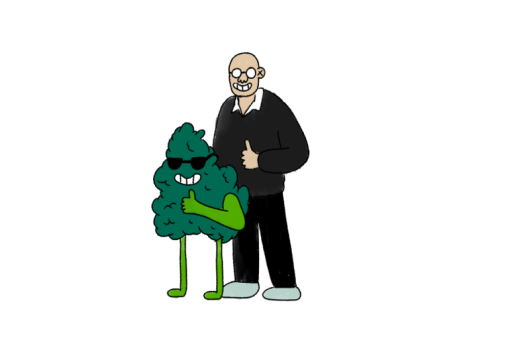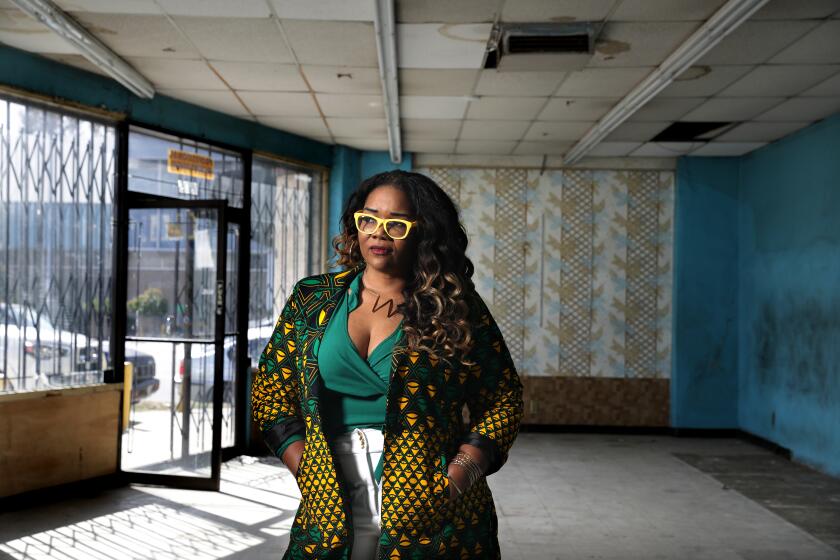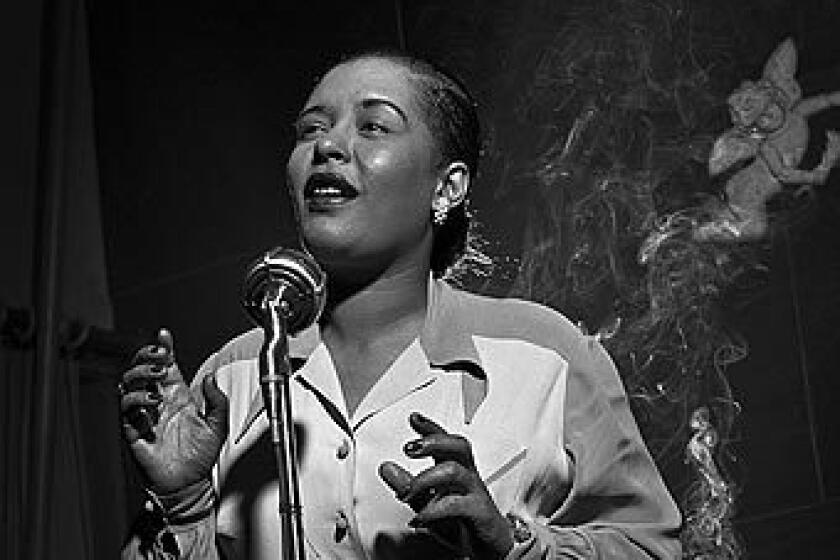Black Girl Magic meets Jazz Age speakeasy at this new L.A. pot shop

- Share via
What if Josephine Baker and Billie Holiday — two powerful, celebrated, weed-smoking, Jazz Age Black women — somehow discovered a time portal in the back of a 1930s smoke-filled speakeasy and stepped through it into modern-day Los Angeles, where they promptly opened a pot shop? That sounds like the elevator pitch for a fantastical time-traveling stoner comedy, but it’s basically the vibe of Josephine & Billie’s, a cannabis dispensary that opened its doors on Martin Luther King Jr. Boulevard late last month.
In keeping with the L.A. dispensary’s Prohibition-era theme, what visitors first see is a postage-stamp-size shop emblazoned with an Apothecarry sign and stocked with a tightly edited collection of smoking paraphernalia (think bedazzled joint holders, handbag-shaped lighters, globe-shaped water pipes and sweatshirts emblazoned with the all-caps slogan “Buy weed from women”) but nary a cannabis nug, vape pen or THC-infused edible.
Visitors who step up to the shopkeeper and utter the words “Billie sent me” will find themselves ushered through a hidden doorway and into a 1,500-square-foot space stocked — herringbone-patterned floor to chandelier-festooned ceiling — with all manner of cannabis-containing products.
The entirety of the retail concept is a conscious effort to cater specifically to women of color, a cannabis-consuming demographic often overlooked. Founder and chief executive Whitney Beatty and chief operating officer Ebony Andersen know this from firsthand experience.
Beatty, 43, and Andersen, 39, are cannabis consumers and mothers of young children (a 7-year-old son and an 8-year-old son, respectively). Beatty, a social equity applicant for an L.A. dispensary license, has been navigating the process — and paying rent on the space since August 2019. Andersen, who also serves as the COO of Ball Family Farms, came on board after Beatty’s previous investors went out of business.
Although the duo has been working together on the project only for 18 months, they laugh, cry and joke about Black Girl Magic with the easygoing rapport of lifelong friends. (When Beatty says, “I’ve got the Pinterest boards and the big dreams,” Andersen’s retort is: “I’ve told her a million times. ‘B—, Pinterest boards are not plans!’”)
Cannabis entrepreneurs complain that the sluggish rollout of L.A.’s social equity program is hurting some of the people it was supposed to help.
With a background in urban planning, Andersen said she initially had doubts about opening a dispensary for women of color. “At first I wasn’t on board with the concept,” she said. “I didn’t think that people would be interested in Black women. I really didn’t believe it. And after we had that summer of George Floyd, we had a moment and people started paying attention. We had lived in a world where we were invisible for most of our lives. I’m saying this as a Black woman — a successful Black woman, I think many would say. Nobody knew what I’d accomplished. Nobody cared. So why would they care now? But they did care, and Whitney [seized on that]. That’s where our sisterhood is important to talk about.”
“Because I was yelling it,” Beatty said. “I was yelling it at every investor because they were telling me the same thing … and I was like, ‘Black women are trendsetters. Black women have spent money on health and beauty for years. Black women spend $1.5 trillion dollars annually. We spend money. Women control household spending. How are you telling me we don’t matter?’”
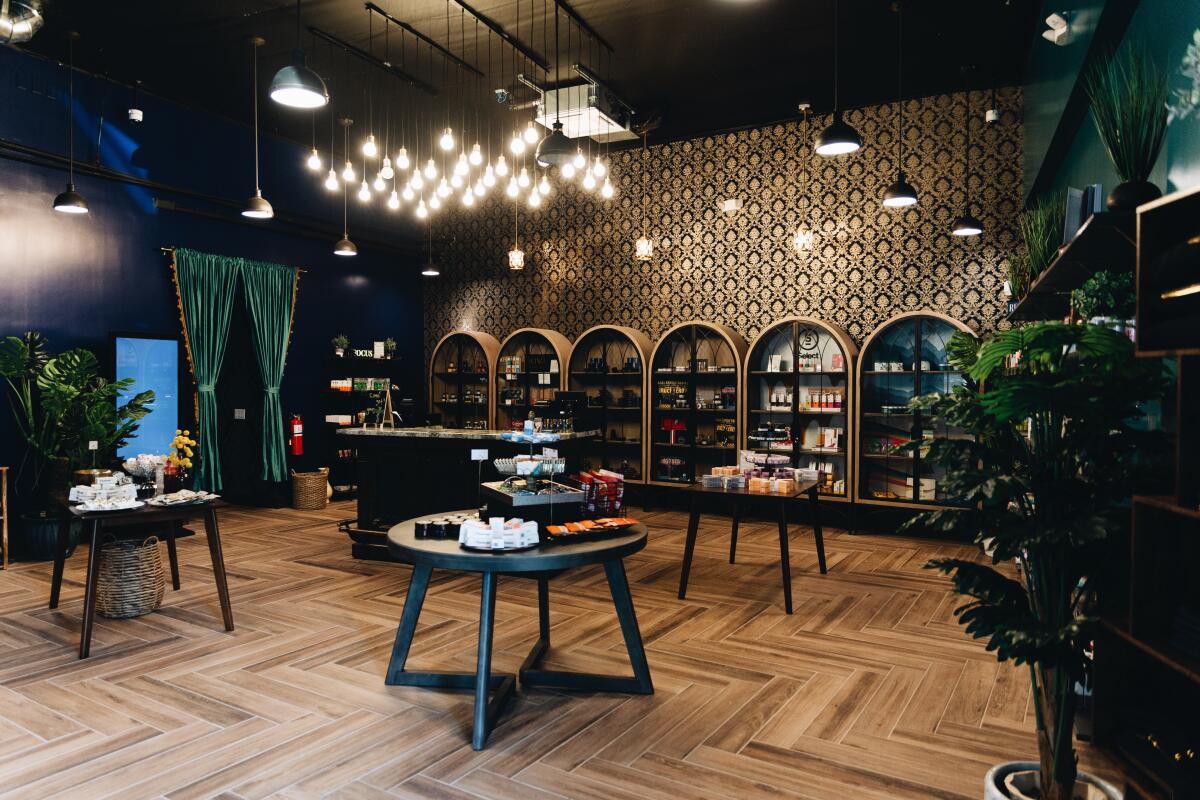
The combination of Beatty’s yelling and Andersen’s planning eventually persuaded enough investors (including the Parent Co.’s Jay-Z and Desiree Perez-led social equity ventures fund, which chose the dispensary as its first investment) to contribute the necessary funds to bring the shop, which Beatty and Andersen described (in unison) as “Sephora meets Disneyland,” to fruition. The Sephora part, they said, because the cosmetics retailer emphasizes informing and educating customers, and the Disneyland part because of the immersive themed retail experience that in addition to the decor, which includes a vintage reproduction bar and flocked wallpaper, features in-character store staff.
How does that translate specifically into a dispensary that addresses the needs and wants of women of color?
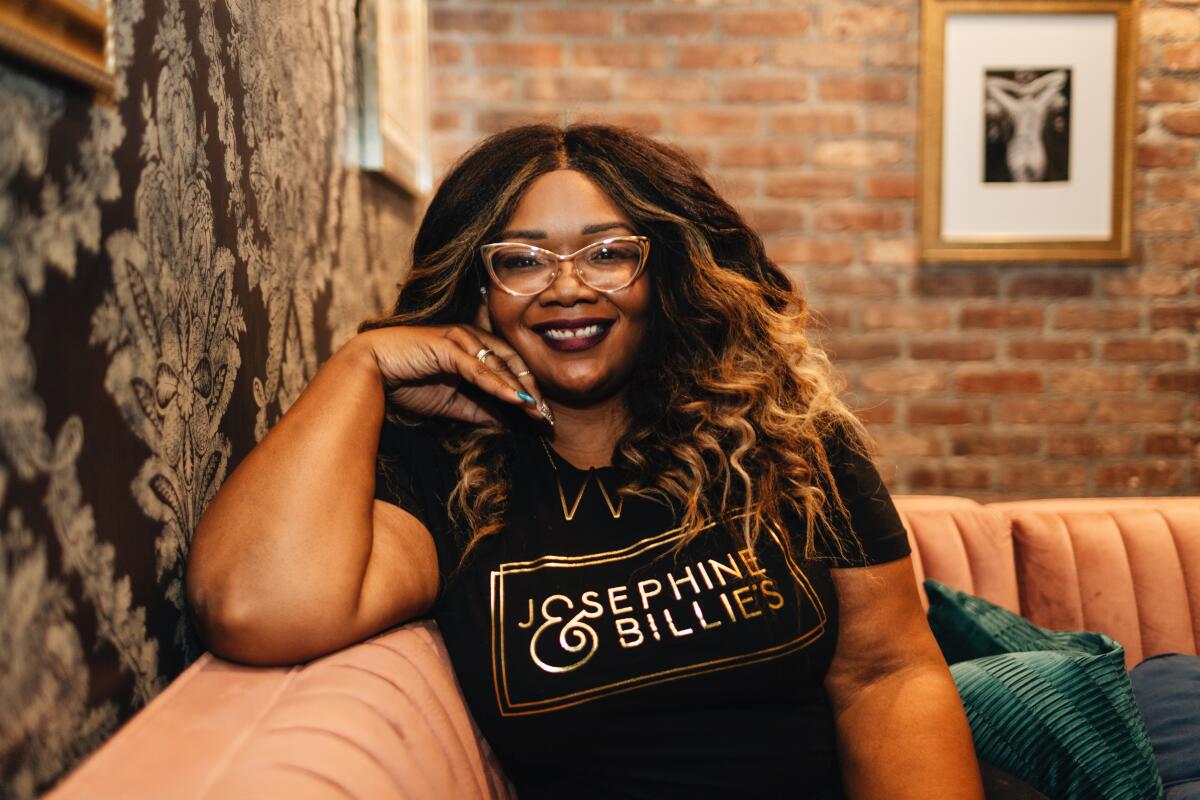
It’s about feeling seen
“Being in the planning and development world, you see no spaces designed by Black people,” Andersen said. “And this is one. We were very intentional, very mindful of the culture. We’re looking at it through the lens of a Black woman. OK, what kind of things do we want to see in a space? What makes us feel comfortable? We don’t get to walk into CVS and then necessarily feel like the space is designed for us, right? But here we do. You can see [pictures of] Black people on the walls. You get to see little nods to our grandmother like the flocked wallpaper or the velvet drapes. We almost put plastic on the sofa! Eventually we’ll have a dish of strawberry candies. It’s those little things that make you nostalgic and make you feel welcome and feel seen and feel heard.”
Beatty said that element of feeling seen extends to the name of the dispensary itself. Josephine Baker and Billie Holiday “were two women of color who were persecuted for their cannabis consumption,” she said. “But what I think is really important is that they were persecuted and yet they used their art to fight against that injustice. They rejected the mainstream. They wrote their own rules, and they held the door open for others that came after. And for us, that’s goals as hell.”
“The United States vs. Billie Holiday” tells the tale of the FBI’s targeting of the jazz singer, whose “Strange Fruit” became a protest anthem.
“I think that there’s something to be said for coming in and seeing Black and brown people as associates, as managers here — [as] executives,” Beatty said. “There’s a comfort level there. You know that? I don’t want to go and ask Chad about how cannabis can help my endometriosis. I don’t want to talk to him about my menstrual pains.” (Chad is a slang term for the straight, white male demographic that has long dominated the cannabis space, otherwise known as “cannabros.” The dispensary’s entire staff of budtenders, which the duo have dubbed “herbal wellness advocates,” is a strikingly Chad-free bunch. They are women of color.)
It’s about being heard
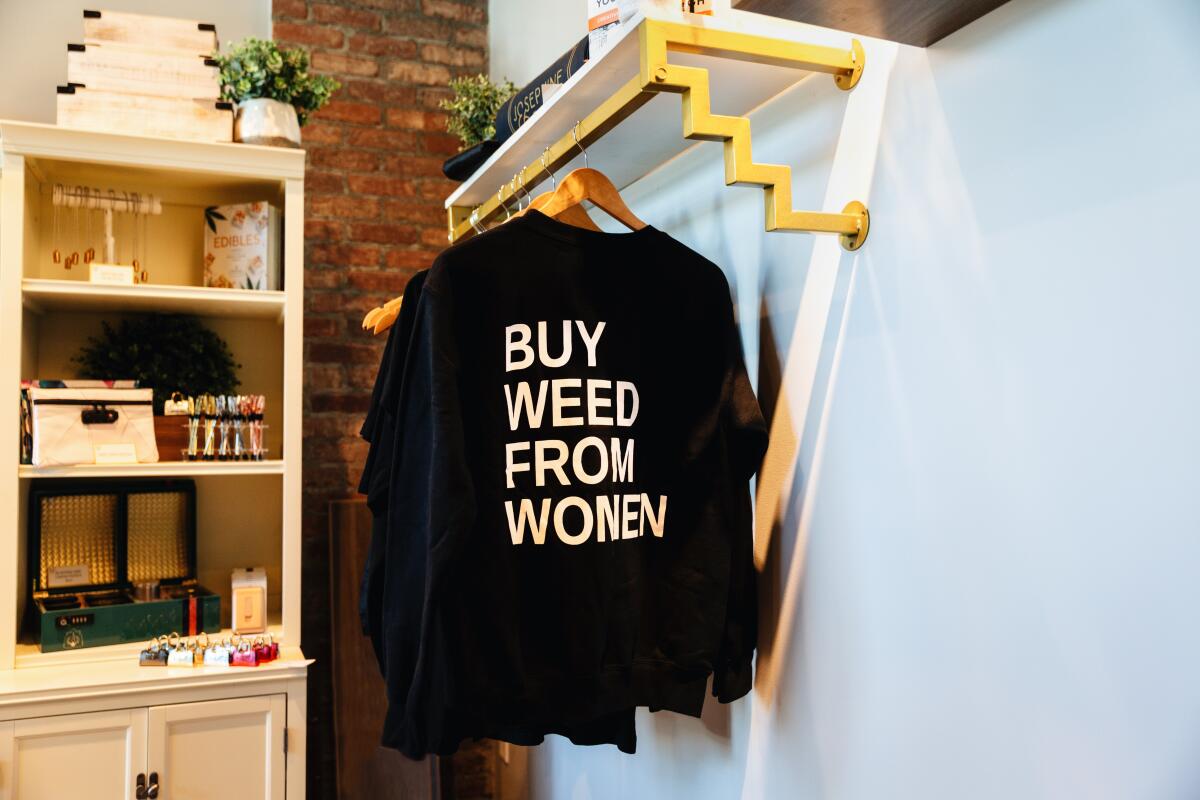
“We intentionally went undercover [to other local dispensaries] and we said all the mommy things,” Andersen said about researching the dispensary landscape. “Saying things like: ’We don’t know what we want’ and asking lots of questions.”
“If one more person offered us a 1,000-milligram [THC-infused] grape drink …” Beatty said. “What am I going to do with that? I have a child. My legs have to work if my child needs food! That is not what this demographic needs.”
Beatty and Andersen said pot-partaking parents are often overlooked in the dispensary environment.
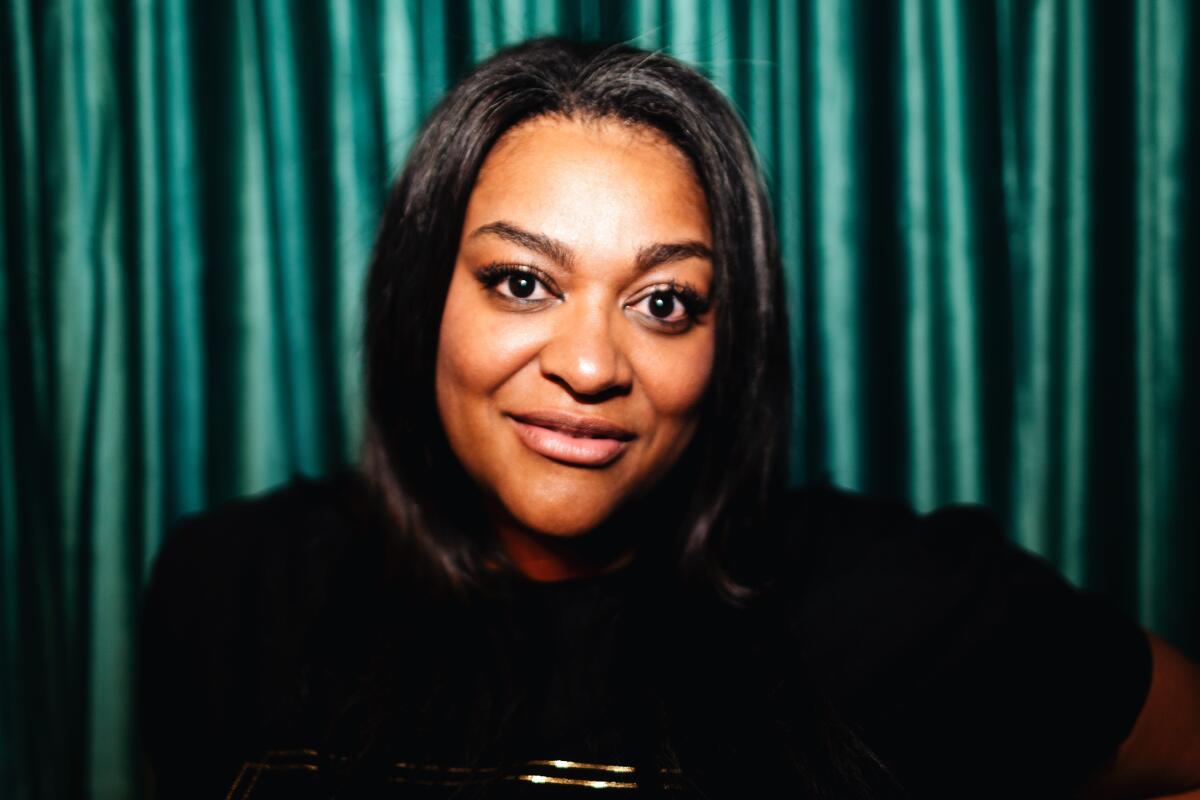
“There’s a point in your life — for me it was around 30-ish,” said Andersen, “where you’re like, ‘Oh, damn, this is adulting,’ where you have to be conscious for your children. You have to be mindful of your spouse. You have to be mindful of your neighbors. That kind of maturity where we say, “OK, we can’t just be smoking all the time.” And I think that’s another part of the store. That’s important because we do have a lot of older women, especially in our community, that can’t smoke. Or we’ve been taught smoking is so bad. So we have a lot of products on our shelves that don’t require you to smoke. I think that that’s really important too because it gives the more mature — or the moms of the world like me — options.”
It’s about what’s on the shelves
In addition to the jars of flower (Monogram, Caliva and Pure Beauty, to name a few), pre-rolled joints (Drew Martin, Jetty and Leune) and concentrates (Fun Uncle and Dreamt), there’s a deep bench of tinctures (Yummi Karma), topicals (Papa & Barkley patches and Cosmic View balms) and a veritable smorgasbord of edibles (among the lip-smacking offerings noticed on a pre-opening tour were Potli Shrimp Chips, Kikoko tea, Cann beverages, Kiva chocolate bars and Dr. Norm’s cookies).
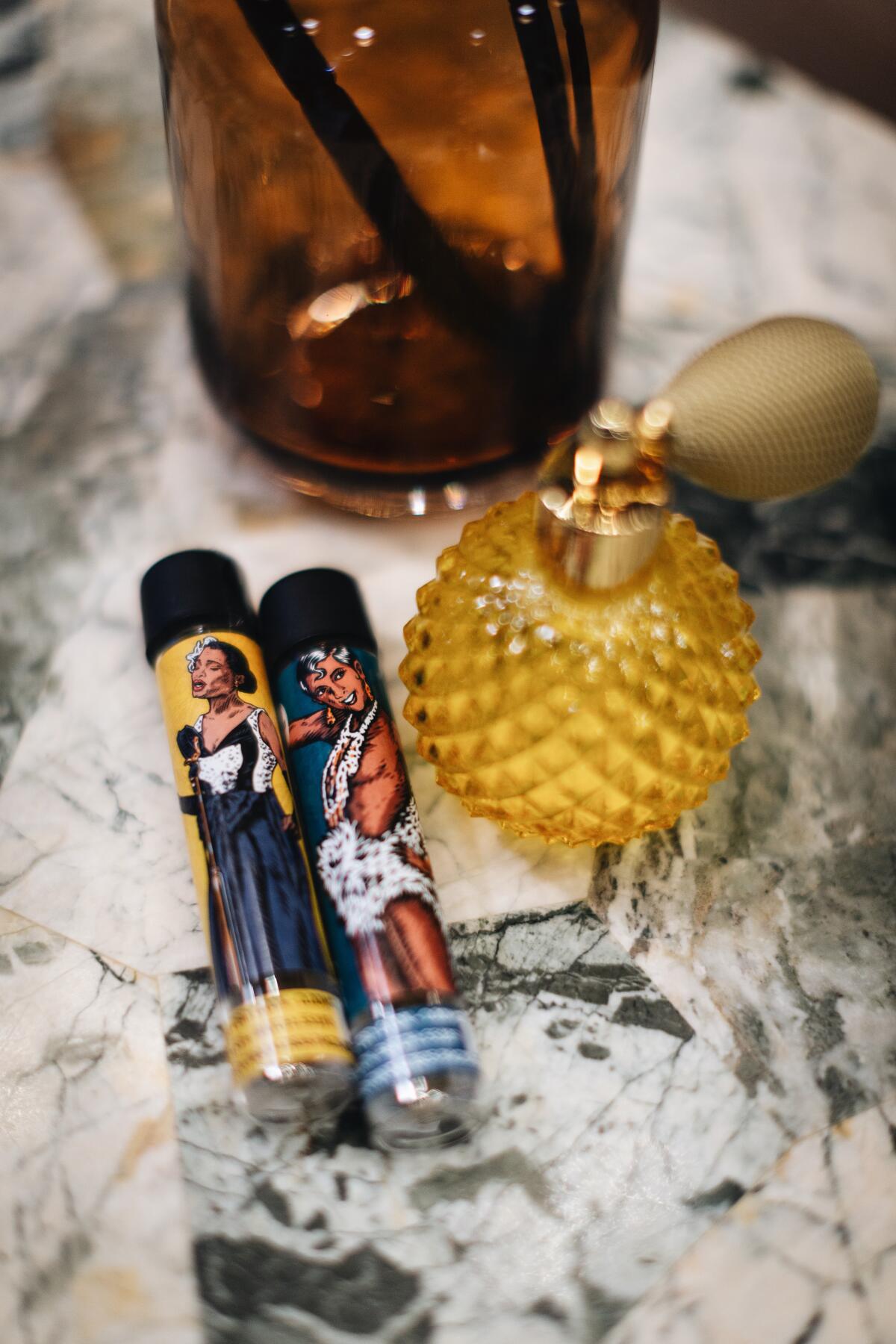
There’s also a display case merchandised solely with BIPOC- and women-owned brands including Ball Family Farms, Sundae School, Kush Queen, Biko, SF Roots and Tical. A few other display cases feature the dispensary’s partner brands (Ball Family Farms and Caliva among them) and the rest of the offerings are organized by effect; small, colorful signs around the room read: focus, energize, uplift, relieve and relax.
It’s about feeling safe
While the speakeasy theme itself isn’t original in the dispensary space, Beatty said their twist on the theme underscores the notion of a safe space for communities of color. “We don’t use the word ‘speakeasy,’” she said, explaining that she and Andersen prefer to use the Prohibition-era term “teapad,” which referred to a safe place the Black community could gather, listen to music — and smoke cannabis.
In addition to the aesthetic of the space and the reintroduction of some period-appropriate slang via the dispensary’s Instagram account, including “viper” (“a cool cat that smokes cannabis”) and “gage” (a slang term for weed), there’s a cozy couch-filled room, separated from the main dispensary floor by thick, velvet drapes, where customers can go for more private conversations about cannabis.

The couches also underscore how Beatty and Andersen hope to flip the customer-interaction script. “The usual dispensary formula is the cost of goods per person per minute,” Andersen said. “But we know that’s not how women shop. The longer they’re here, the more they’re going to buy [and] the more they’re going to come back.”
It’s about education
From the time-portal entrance to the dispensary to the brick walls of that back room, any walls not covered with shelves of product or Jazz Age photographs are dominated by poster-size pot primers the women said are key to their approach.
“We call the wall right near the front our terp wall,” Beatty said. “And it explains the different terpene profiles and what the terpenes are good for.” (Terpenes are the aromatic oils that give cannabis strains their distinct flavors.) The one titled “Billie’s Terpenes Breakdown” highlights a handful of them complete with a pronunciation guide, description and effect. Another poster helps customers decode the dispensary’s labels, which include a visual potency rating in the form of Champagne glasses ranging from five glasses (indicating strong effects) to one glass (low effects).
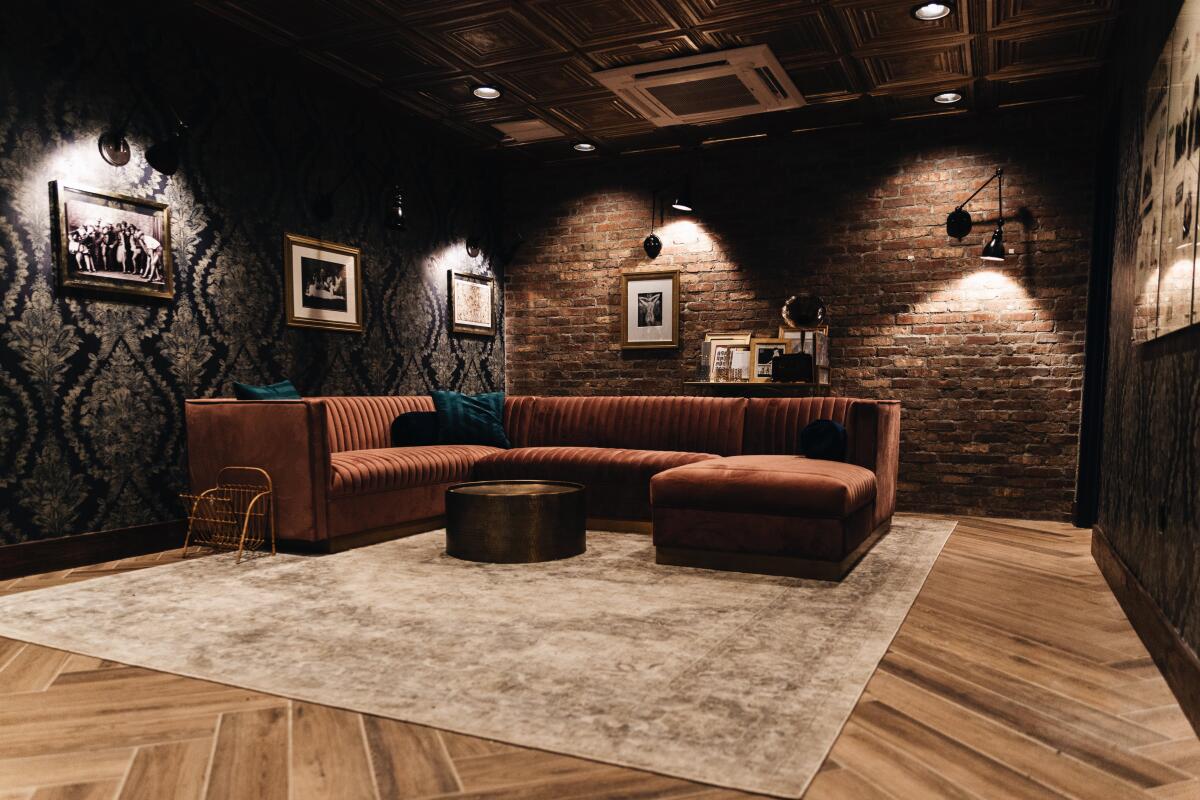
One wall of the couch-filled room is dominated by a timeline of cannabis history from 1400 to the present that the women said is as important a piece of education as anything else in the dispensary.
“Because if you don’t know the history of cannabis, you don’t know where that stigma comes from,” Beatty said. “That is critical especially for communities of color. There’s almost a PTSD in communities of color when your community was hit so hard by the war on drugs. We especially see it with older people of color, where they’re scared to use the plant that way because it tore our communities apart.”
It’s about growth
Before the dispensary’s Oct. 29 opening, Beatty and Andersen were working their magic to conjure a bigger, brighter future for Josephine & Billie’s; they recently locked up the lease for the 3,000-square-foot space next door (currently occupied by a laundromat), allowing them to expand retail and add a consumption lounge and a delivery service. Additional dispensary locations are on deck.
“I see this as a flagship store, the very beginning,” Beatty said. “Our job here is proof of concept, and my job is to go back out in a couple of months and raise money. We’re an MSO [multi-state operator] waiting to happen.”
“We have a plan,” Andersen said. “I wouldn’t be involved in this if it was a one-off dispensary.”
What bodes well for Josephine & Billie’s is that the vibe of the space appears to be a hit for those who weren’t necessarily seeking it out. “I usually go to dispensaries in Boyle Heights, where I live,” said Michael Calderon, 31, who popped in on Monday afternoon because he was visiting a friend in the neighborhood. He left with a jar of Pure Beauty indica-dominant flower.
“I know that different dispensaries tailor to particular demographics, but this is f— awesome,” he said. “The aesthetic, the setup, the lighting. Over the years, I’ve gone to lots of dispensaries that just feel shady, almost like they’re not obeying the law. And I come in here, and it feels comfortable. It feels welcoming.”
Josephine & Billie’s, 1535 W. Martin Luther King Jr. Blvd., Los Angeles, 11 a.m. to 7 p.m. Monday through Saturday and 11 a.m. to 6 p.m. Sunday. (Don’t forget to say Billie sent you.)
More to Read
Sign up for The Wild
We’ll help you find the best places to hike, bike and run, as well as the perfect silent spots for meditation and yoga.
You may occasionally receive promotional content from the Los Angeles Times.

